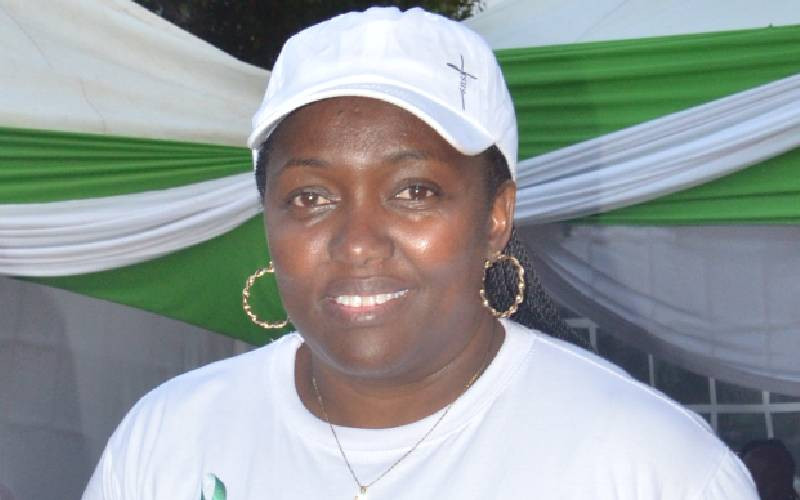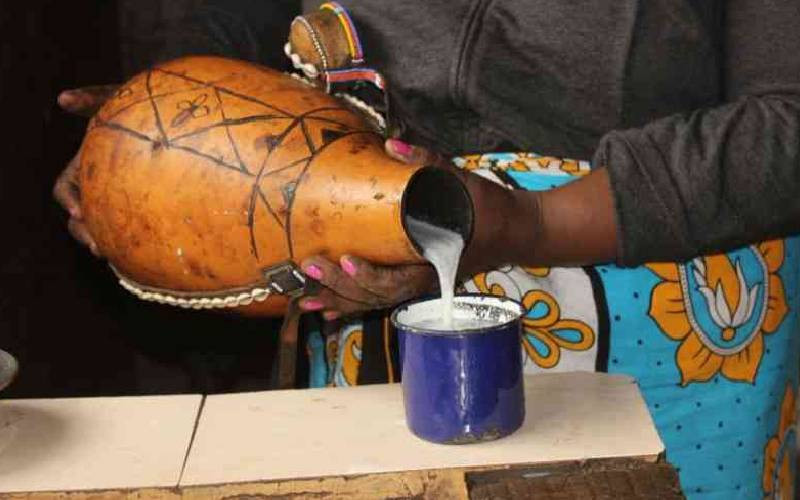
Patricia Karani grew up as an active child, one who was eager to explore books and her environment.
But nothing prepared the 35-year-old for a rare hereditary disease that makes her prone to swelling. Her two brothers have the genetic condition known as hereditary angioedema.
It is an inherited disease that affects the immune system and is caused by low levels or dysfunctional proteins in the body known as C1.
“It is an invisible illness,” she says. Given the transferability of the genes, three members in the family of six have the condition. The lack of awareness about how the condition manifests led to several misdiagnosis.
“I would get swellings on my throat and stomach and the initial suspicions pointed to allergies, but the results were never conclusive enough to arrive at a particular allergy,” Karani says.
"Between 1999 and 2013, I was under the spell of over-the-counter drugs that occasionally worked but the side effects affected my socialisation and sometimes I became unconsciousness," she adds.
According to Dr Erick Njenga, the disease manifests as three types, A, B and C which should be caught early and managed appropriately if the patient’s quality of life is to be upheld.
At one time, Karani had severe swelling in her throat that almost interfered with breathing but she arrived at the emergency room in good time for the reaction to be controlled.
“I have had my fights with throat swellings and before the diagnosis, I was always on an array of drugs to reduce the spread of swellings to other internal parts like the abdomen,” she says.
Dr Njenga observes that the attacks, which manifest as swellings either internally or externally, occur with no apparent cause. However, emotional stress and minor physical trauma are known triggers. Some patients have reported swellingd after prolonged typing, and writing, pushing a lawn mower, hammering and other physical activities.
“Other common triggers of the disease include the beginning of menses in women in about 35 per cent of the cases, pregnancy, use of some oral contraceptives or hormonal replacement therapy or stress,” Dr Njenga said.
He cites excessive swelling of external and internal organs like the face, chin, throat, neck, legs, hands, genital areas, intestines, uterus as some of the common features of the condition.
Treatment requires replacement of a blood product given through the veins known as C1 esterase inhibitor for life threatening attacks and costs about Sh500,000 per vial.
There is a 50 per cent chance that a parent will pass on this gene to the child, a statistic that Njenga observes is higher than the inheritance of other disease traits.
Though there are a few warning signs ahead of the swellings some people experience a slight rush before the swellings begin.
“You can feel it coming, like something is wrong, fatigue, confusion, lack of ability to focus and concentration,” she said. The condition is commonly misdiagnosed because it is recognised as an allergy.
The most life-threatening aspect of the condition is a throat swelling that could lead to death due to obstruction of the airway.
Though there is no cure for this condition, Karani and her brothers take preventive drugs to keep down the swelling, but in some patients, fresh frozen plasma can be used to control the contusion.
She appreciates her mother's support.
Though she is aware that there is a 50 per cent chance of passing the genes to her child, Karani is taking one day at a time to understand the connection better.
“It takes so much of your willpower that you wouldn’t want even your child to have it. But I am becoming more empowered every day,” she says.
Karani, who is trained in Human Resource and Administration, says despite what she has been through, meeting patients and specialists has helped her to manage the condition and live a productive life. “I am a naturally hardworking person and knowing how to manage it has seen me achieve a balance in my life even when the condition takes me longer to achieve what I want,” says Karani, who also runs a catering business.
She believes the condition is highly misunderstood, especially by those who think it is contagious.
Available medicine
Her most recent swelling in December was not too severe because she took medication promptly.
“The lack of locally available medicine terrifies me,” she says, adding that she spends about Sh6,000 every month on drugs.
Her brother Francis Karani, who currently lives in the United States, also has the condition.
“I got a throat attack and a visit to the doctor diagnosed an allergic reaction,” Francis says. He remembers that as a young active boy growing up, he would experience swelling in his nostrils but this would fade after some weeks.
The condition was diagnosed when he was 29 years old. Francis says he is now more prepared to manage the condition.
Njenga explains that available treatments include replacement therapy and giving blood components to block swellings. The doctor advises that patients should not ignore swellings as they could be a trigger for more complicated conditions.
Karani and her brother are aware of the risk of getting addicted to pain killers and take preventive medicines.“I take my medicines religiously. However, the drugs not deter me from being social and productive in my businesses,” says Karani.
Despite a 50 per cent chance of passing the defective gene to his offsprings, Francis would one day like to have children.
“Despite it being a rare disease, it does not limit me and one day soon, I pray God blesses me with a child,” Francis says.
 The Standard Group Plc is a multi-media organization with investments in media
platforms spanning newspaper print
operations, television, radio broadcasting, digital and online services. The
Standard Group is recognized as a
leading multi-media house in Kenya with a key influence in matters of national
and international interest.
The Standard Group Plc is a multi-media organization with investments in media
platforms spanning newspaper print
operations, television, radio broadcasting, digital and online services. The
Standard Group is recognized as a
leading multi-media house in Kenya with a key influence in matters of national
and international interest.











